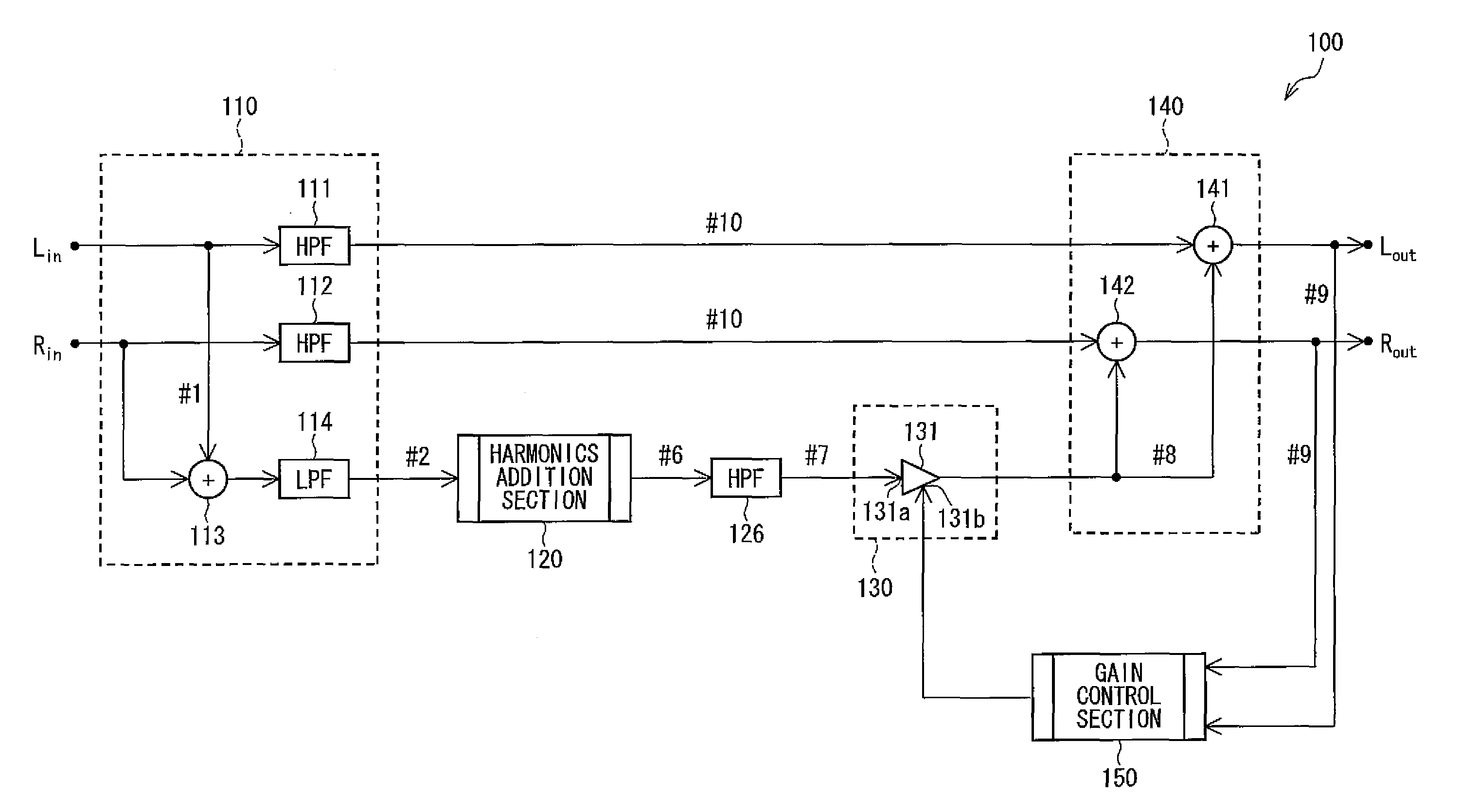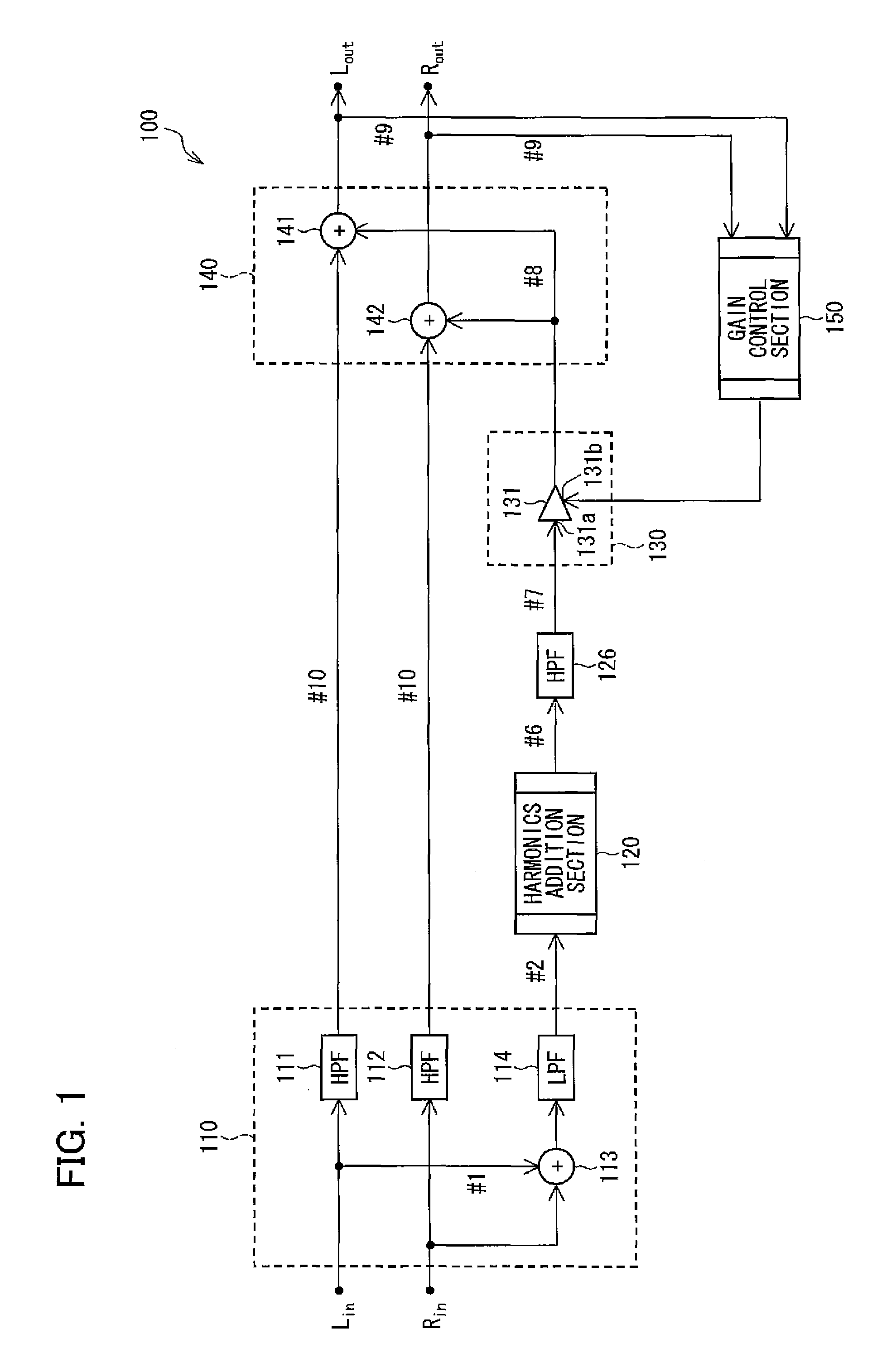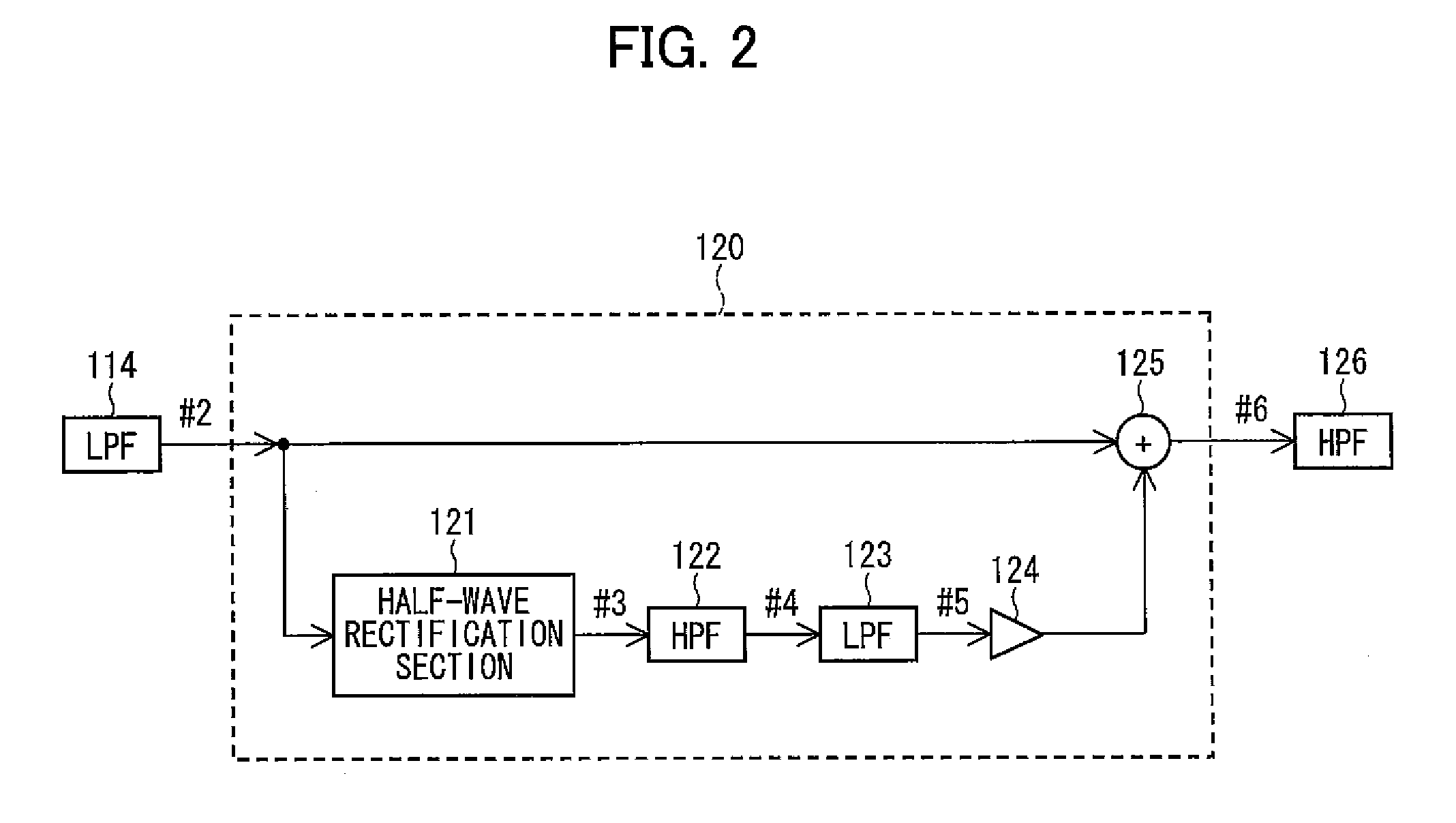Sound signal processing device, sound signal processing method, sound signal processing program, storage medium, and display device
a sound signal processing and sound signal technology, applied in signal processing, transducer details, electrical transducers, etc., can solve the problems of sound output from the speaker sound finally output from the speaker is likely to be distorted, and the base is likely to be insufficient, so as to prevent clipping in the receiving end
- Summary
- Abstract
- Description
- Claims
- Application Information
AI Technical Summary
Benefits of technology
Problems solved by technology
Method used
Image
Examples
embodiment 1
[0057]The following description will explain a sound signal processing device 100 according to an embodiment of the present invention with reference to the attached drawings.
[0058]First, with reference to FIG. 1, the arrangement of the sound signal processing device 100 is described as follows.
[0059]FIG. 1 is a block diagram illustrating the arrangement of the sound signal processing device 100. The sound signal processing device 100 processes digital sound signals, having been inputted via input sections Lin and Rin respectively, so as to output the processed digital sound signals via output sections Lout and Rout. As a receiving end device connected to the output sections Lout and Rout so as to receive the processed digital sound signals, a power amplifier (not shown) connected to the sound signal processing device 100 via a D / A converter (not shown) is conceivable for example.
[0060]As illustrated in FIG. 1, the sound signal processing device 100 schematically includes a sound sig...
example 1
(Example 1 of the Harmonics Addition)
[0083]With reference to FIG. 3 to FIG. 8, the following explains an Example of the harmonics addition carried out by the harmonics addition section 120 of FIG. 2.
[0084]In the present Example, the half-wave rectification 121 carries out half-wave rectification with respect to the low frequency signal #2 so as to add the harmonics containing the fundamental wave to the low frequency signal #2. Further, the cutoff frequency L122 of the high-pass filter 122 is set to 200 Hz, and the cutoff frequency H123 of the low-pass filter 123 is set to 300 Hz, and an amplification factor (or an attenuation factor) of the volume 24 is set to 0 dB.
[0085]FIG. 3 is a graph illustrating frequency characteristics of the high-pass filter 122 and the low-pass filter 123 of the present Example. In this figure, a continuous line indicates a frequency characteristic of the high-pass filter 122 whose cutoff frequency L122 is set to 200 Hz, and a dotted line indicates a freq...
example 2
(Example 2 of the Harmonics Addition)
[0091]With reference to FIG. 9 to FIG. 12, the following explains another Example of the harmonics addition carried out by the harmonics addition section 120 of FIG. 2.
[0092]In the present Example, the half-wave rectification 121 carries out half-wave rectification with respect to the low frequency signal #2 and squares the low frequency signal having been subjected to the half-wave rectification so as to add the harmonics containing the fundamental wave to the low frequency signal #2.
[0093]Also in the present Example, the cutoff frequency L122 of the high-pass filter 122 is set to 200 Hz, and the cutoff frequency H123 of the low-pass filter 123 is set to 300 Hz, and an amplification factor (or an attenuation factor) of the volume 24 is set to 0 dB as in Example 1. Also in the present Example, the low frequency signal #2 whose center frequency is 100 Hz illustrated in FIG. 4(a) and FIG. 4(b) is inputted to the harmonics addition section 120 as in...
PUM
 Login to View More
Login to View More Abstract
Description
Claims
Application Information
 Login to View More
Login to View More - R&D
- Intellectual Property
- Life Sciences
- Materials
- Tech Scout
- Unparalleled Data Quality
- Higher Quality Content
- 60% Fewer Hallucinations
Browse by: Latest US Patents, China's latest patents, Technical Efficacy Thesaurus, Application Domain, Technology Topic, Popular Technical Reports.
© 2025 PatSnap. All rights reserved.Legal|Privacy policy|Modern Slavery Act Transparency Statement|Sitemap|About US| Contact US: help@patsnap.com



